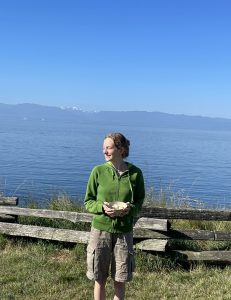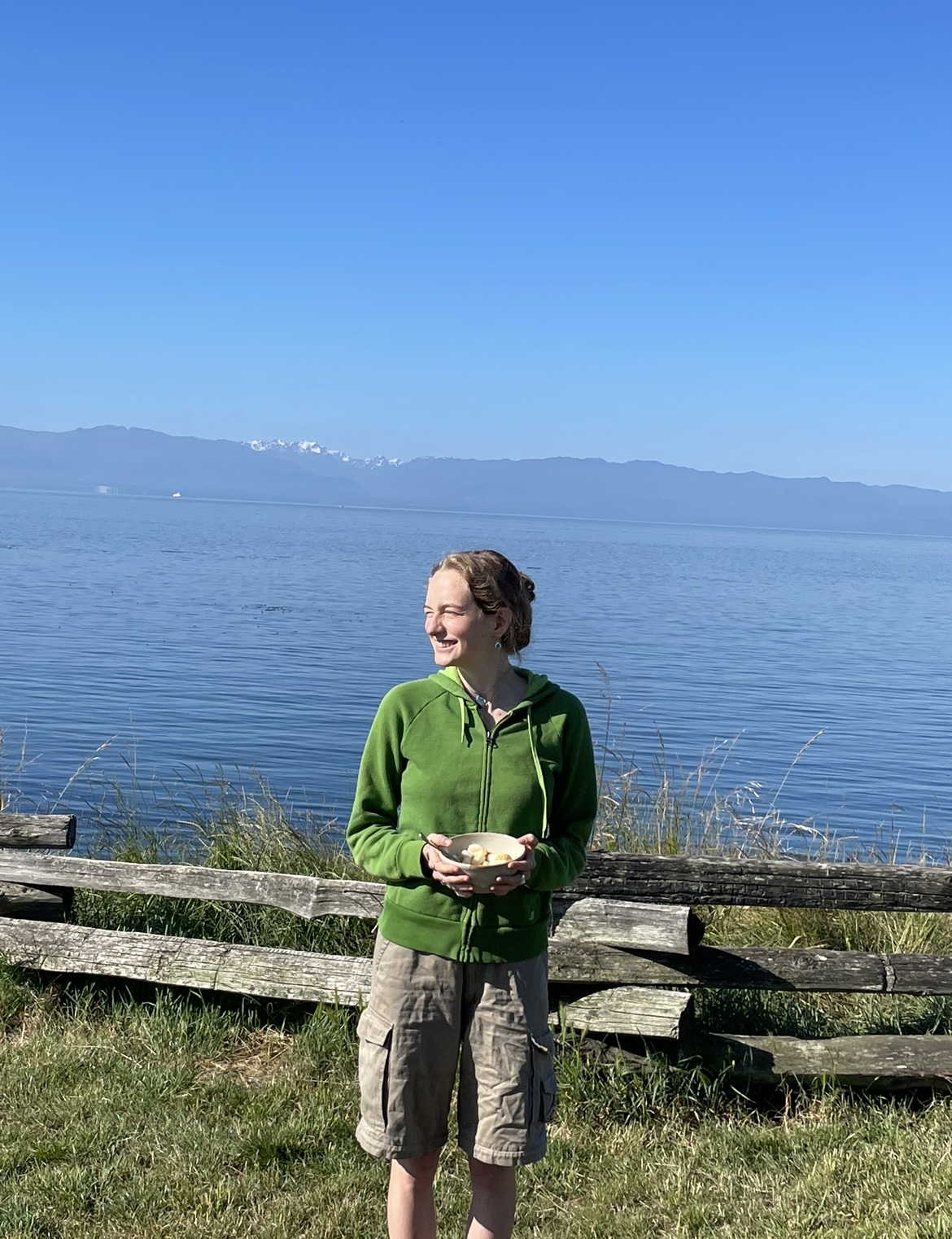By Kate O’Connor, 2022 Canada Summer Jobs placement student
 This summer, I worked with MakeWay and OneEarth on the newly launched ‘Fair Earth Living’ initiative which aims to accelerate the ways that communities across Turtle Island can shift cultures and behaviors so we can all live happy lives in balance with nature. The concept of Fair Earth Living is not new and some communities, such as many Indigenous communities, are already living sustainably. This initiative is about mainstreaming sustainable lifestyles.
This summer, I worked with MakeWay and OneEarth on the newly launched ‘Fair Earth Living’ initiative which aims to accelerate the ways that communities across Turtle Island can shift cultures and behaviors so we can all live happy lives in balance with nature. The concept of Fair Earth Living is not new and some communities, such as many Indigenous communities, are already living sustainably. This initiative is about mainstreaming sustainable lifestyles.
Looking back at my childhood, I realize I first interacted with a version of Fair Earth Living during childhood summers on Pender Island, BC – a community of 2,500 people with one of the oldest and most comprehensive recycling systems in the country, healthy community gardens, a repair and reuse store, and a bustling farmer’s market. Like many people my age, I later became involved in various forms of climate action while living in Victoria, BC. I participated in climate strikes, advocated for sustainable initiatives at my high school, and volunteered on numerous political campaigns. In fact, in the last BC Provincial Election, I ran as an MLA candidate with a platform centered on urgent climate action, intergenerational leadership, and youth participation in politics.
While all forms of climate action are crucial, I have often found climate work overwhelming, exhausting, and emotionally draining. Even though I feel a personal responsibility to live sustainably, taking climate action can feel like a sacrifice. The majority of conversations I have about the climate crisis, especially with my peers, are imbued with a deep sense of grief, as well as guilt, anger, and blame. These emotions are valid and should be given space to be expressed. However, the traditional framing of ‘living a sustainable life as a burden or sacrifice’ often causes people to disengage from any conversation about the climate or nature crisis.
Fair Earth Living is transformative because of the way it reframes sustainable lifestyles. When I first read about the initiative, I felt energized instead of the normal heaviness that I have come to associate with climate work. Fair Earth Living is about recognizing that we do not need to own material things or to live a high-emitting lifestyle to be happy. Happiness is connected to our health, sense of purpose, social connection, and community. Fair Earth Living choices and initiatives are not imbued with a sense of deprivation but with joy! For example, ‘Fashion Takes Action’ explores how embracing sustainability can help fashion designers and producers experiment with new and innovative clothing design. Another example is the national nature prescription program, ‘PaRx’, which supports health-care professionals to connect their patients to nature in order to improve overall health and wellbeing.
Interacting with a joy-based framing of climate action is not only refreshing but invigorating. After discussing this initiative with my friends, Fair Earth Living has become a source of inspiration and energy. No longer do we avoid talking about climate out of fear that this topic will dampen the mood. Instead, we are brainstorming programs we can implement at our university and exploring new lifestyle choices that could benefit ourselves, our community, and the planet. One of the biggest opportunities for embracing Fair Earth Living is during major life changes such as going to university, starting a family, or retiring because these are moments when people are open to starting new lifestyle patterns. As a first-year university student, I noticed how many students became vegetarians when they moved away from home.
However, facilitating a culture shift towards sustainable lifestyles is only one important piece in the larger puzzle of climate solutions that will also need to be supported by infrastructure, policy, and technology. Fair Earth Living is not about blaming the individual and while many people want to live more sustainable lives, they lack the supportive contexts to do so. Philanthropy can help create these supportive contexts by financially supporting key areas and leading initiatives that will enable culture and systems change faster.
Even though Fair Earth Living is a joint responsibility, living a sustainable lifestyle does not look the same for everyone. For example, someone living in a city has different transportation needs than someone living in a rural area. Contextual factors such as geographic location, socio-economic standing, and current consumption level all affect how people will engage with Fair Earth Living.
While I still feel strong, difficult emotions regarding the climate crisis, working on the Fair Earth Living initiative has given me hope by positively reframing climate action in a joyful way. I come away from this experience determined and excited – recognizing that I am one knot in a growing net of cultural transformation that will help us all live happier and healthier lives in harmony with the natural world.
Kate O’Connor worked with MakeWay through a Canada Summer Jobs placement. She is from Vancouver Island but grew up in the UK, Middle East, the United States and Canada. She starts her second year at McGill University this fall.
Learn more about how MakeWay and our partners at OneEarth and Hot or Cool Institute are advancing the Fair Earth Living funding collaborative to fund solutions that allow everyone to have good, happy lives in balance with nature. fairearthliving.ca
